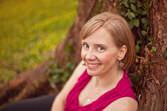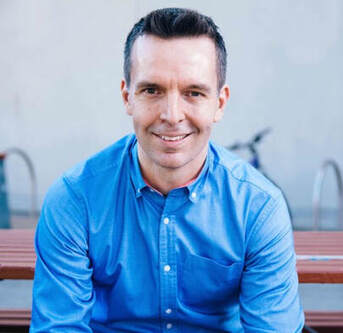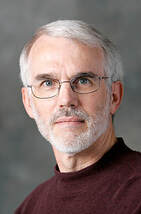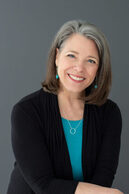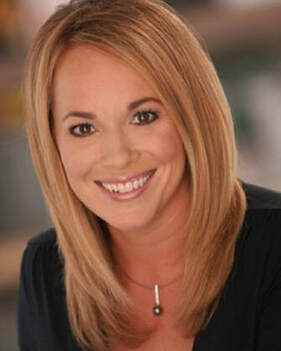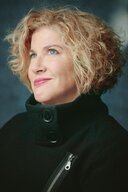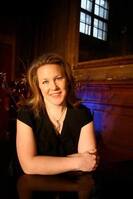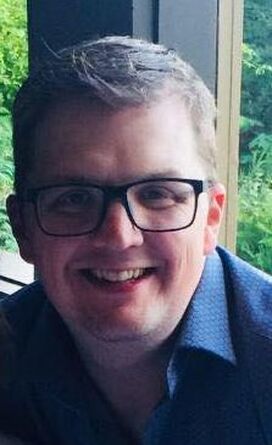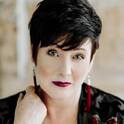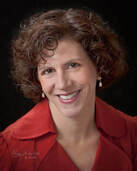KENNETH BOZEMAN
(Lawrence University Conservatory of Music, New England Conservatory of Music, NATS Journal of Singing)
CAROL MASTRODOMENICO
(Tufts University, Longy School of Music at Bard College, Tanglewood Fellow, Classical Singer Convention Lecturer)
DR. STEPHANIE WEISS
(Arizona State University, University of Nevada-Las Vegas,
Metropolitan Opera Education, AIMS in Graz, Deutsche Oper Berlin)
SUSAN EICHHORN YOUNG
(Western University, Sarah Lawrence College, Moravian College, New York University Tisch School of the Arts' CAP21)
SARAH WHITTEN
(Harvard University, Boston Conservatory, New England Conservatory, NATS Lecturer)
JOANNE BOZEMAN
(Lawrence University Conservatory of Music, Bach Chamber Choir)
KATE EMERICH
(Vocal Essentials: Core Voice Training, University of Denver, Lamont School of Music, National Theatre Conservatory, National Center for Voice and Speech, Opera Colorado, Opera Theatre of the Rockies, Colorado Symphony, International Lyric Academy in Italy)
ANDREW BYRNE
(The Sundance Theatre Lab, Yale Repertory Theatre, North Shore Musical Theatre, Broadway, U.S. State Department Arts Envoy, The Banff Centre, University of Michigan)
JOSH KILLINGSWORTH
(Portland Symphonic Choir, Opera Theater Oregon, Eugene Opera, Oregon Festival of American Music, UA Opera Theater)
HEIDI MOSS ERICKSON
(San Francisco Conservatory, Opera Memphis, San Francisco Opera, Opera San Jose, Fremont Symphony, Peninsula Symphony, Oakland Symphony, Livermore Amador Symphony, Diablo Symphony, The British Voice Association & NATS Presenter)
(Lawrence University Conservatory of Music, New England Conservatory of Music, NATS Journal of Singing)
CAROL MASTRODOMENICO
(Tufts University, Longy School of Music at Bard College, Tanglewood Fellow, Classical Singer Convention Lecturer)
DR. STEPHANIE WEISS
(Arizona State University, University of Nevada-Las Vegas,
Metropolitan Opera Education, AIMS in Graz, Deutsche Oper Berlin)
SUSAN EICHHORN YOUNG
(Western University, Sarah Lawrence College, Moravian College, New York University Tisch School of the Arts' CAP21)
SARAH WHITTEN
(Harvard University, Boston Conservatory, New England Conservatory, NATS Lecturer)
JOANNE BOZEMAN
(Lawrence University Conservatory of Music, Bach Chamber Choir)
KATE EMERICH
(Vocal Essentials: Core Voice Training, University of Denver, Lamont School of Music, National Theatre Conservatory, National Center for Voice and Speech, Opera Colorado, Opera Theatre of the Rockies, Colorado Symphony, International Lyric Academy in Italy)
ANDREW BYRNE
(The Sundance Theatre Lab, Yale Repertory Theatre, North Shore Musical Theatre, Broadway, U.S. State Department Arts Envoy, The Banff Centre, University of Michigan)
JOSH KILLINGSWORTH
(Portland Symphonic Choir, Opera Theater Oregon, Eugene Opera, Oregon Festival of American Music, UA Opera Theater)
HEIDI MOSS ERICKSON
(San Francisco Conservatory, Opera Memphis, San Francisco Opera, Opera San Jose, Fremont Symphony, Peninsula Symphony, Oakland Symphony, Livermore Amador Symphony, Diablo Symphony, The British Voice Association & NATS Presenter)
JULIE WYMA, EXECUTIVE DIRECTOR
ANASTASIA INNISS, ARTISTIC DIRECTOR
ANASTASIA INNISS, ARTISTIC DIRECTOR
DESCRIPTION
Opera Programs Berlin brings together the top minds and practitioners in modern vocal pedagogy. This program combines cutting edge vocal science with practical application to give voice professionals of all types the most in-depth insight into the discipline of singing available.
The program includes:
- 17 Lecture/Demonstrations and Q&A sessions with each clinician
- each session is 90 minutes long
- divided in two parts - lecture/demonstration & Q&A section
- Access to:
- 60-day replay of recordings of all sessions
- teaching tools and resources
- bibliographies and recommended reading on each topic
SESSIONS
|
SARAH WHITTEN:
SEEING IN THE STUDIO: BUILDING YOUR TOOLBOX BEYOND VOCAL TECHNIQUE “The whole body is the instrument” is an often used and little understood phrase used in the voice world. In this workshop we are going to delve into what that phrase means as well as other fundamental concepts related to the body to expand our lens as voice teachers. SARAH WHITTEN: UNDERSTANDING ALIGNMENT Many of the current models that address body position and singing focus primarily on a fixed, postural position being required to produce an optimal sound. Unfortunately a fixed model doesn't work when you are performing and need to move on stage! In this workshop we will address alignment, how it is different from posture and how we can use it as a tool in the studio to help us better understand the singer’s body. |
|
ANDREW BYRNE:
INTRODUCTION TO THE SINGING ATHLETE - PART 1 Everything you are a singer comes from your brain. Join Broadway voice teacher and best-selling author Andrew Byrne for an introduction to his method The Singing Athlete. The two sessions will be focused on giving you practical take-away exercises to quickly boost vocal practice and provide new and exciting challenges for you and your students. In the first session, you will gain a deeper understanding of the brain pathways behind voice, as well as exploring the three key parts of the brain that contribute to breath support and vocal stability. Andrew will show you at-home drills to give yourself a “brain physical” and provide a window into how your nervous system is currently functioning. You will leave this interactive session with concrete drills to improve different areas of the brain. ANDREW BYRNE: INTRODUCTION TO THE SINGING ATHLETE - PART 2 As a teacher, you are constantly faced with students who are experiencing anxiety. This second session will provide a brain-based lens on working with performance jitters. You’ll be shown simple assessments to determine the health of your own autonomic nervous system. Andrew will then share straightforward exercises that can be given to students to allow them to do their best work onstage. |
|
KENNETH BOZEMAN:
THE ACOUSTIC LANDSCAPE ALL SINGERS INHABIT Over the last thirty years we have learned a great deal about the acoustics of range and vocal registration. Specifically, it has become clear that many timbral transitions previously thought to be laryngeal in nature were actually shifts in the relationship between voice source harmonics and vocal tract resonances, the locations of which vary by vowel. These shifts function like acoustic registers which are predictable and mappable by vowel and voice type. It has become clear that vowels necessarily migrate in timbre and sensation across range according to predictable patterns, the knowledge of which greatly assists training for efficient function. KENNETH BOZEMAN: EFFECTIVE ACOUSTIC TRAINING STRATEGIES FOR TREBLE & NON-TREBLE VOICE PASSAGGI Once acoustic registers are understood—where they exist, what causes them, and what their characteristics are—how to train these transitions becomes both specific and clear. This class will explore effective strategies for negotiating the passaggi of male and female vocal range. It will detail the circumstances in which passive vowel migration is sufficient, as well as those in which active vowel modification becomes necessary. |
|
JOANNE HAYES BOZEMAN:
SINGING THROUGH OUR CHANGES: HORMONES & THE FEMALE VOICE - PART 1 JOANNE HAYES BOZEMAN: SINGING THROUGH OUR CHANGES: HORMONES & THE FEMALE VOICE - PART 2 The human larynx is a target of the reproductive hormones: estrogen, progesterone and androgens. For females, within whom the cyclical nature of estrogen and progesterone presents an ever-changing hormonal landscape, understanding and anticipating the potential effects – beneficial or troubling – of these hormones on the voice is empowering. The hormonal journey includes adolescent voice change, the menstrual cycle, pregnancy, breastfeeding, the “4th trimester” and the menopausal transition. These presentations will include an overview of the relationship of the hormone “climate” with adult female voice, based on existing research, clinical opinions, and the unique, lived experiences of singers. |
|
KATE EMERICH:
PRE- AND POST-NATAL VOCAL PEDAGOGY The human larynx and the pelvis are connected many ways; they have fascial connections, vagal nerve innervation, and functional connections as the top and bottom of the pressure exchange system in the body. Both structures are essential for phonation and for giving birth. The tissues of both the larynx and the pelvic floor contain similar hormone receptors and are impacted by the reproductive hormone cycles of estrogen, progesterone and testosterone. This presentation will include discussion of the functional anatomy of the larynx and the pelvic floor related to phonation and childbirth, physical and hormonal changes that occur during and following pregnancy and pedagogical strategies to address those changes. |
|
HEIDI MOSS ERICKSON:
VOCAL TRAINING & NEURODIVERSITY - SINGING FOR ALL exploring vocal pedagogy through the lens of the neurodivergent singer Singing is a complex human behavior linking elements of physics, physiology, and psychology. It carries deep anthropological and biological roots, and as such, should be accessible to all. Through a deeper understanding of learning, emotion, and broad elements of singing itself, we can design pedagogy to best serve ALL students of the voice. |
|
DR. STEPHANIE WEISS:
TRAINING FULL LYRIC, SPINTO, DRAMATIC & ZWISCHEN VOICES In teaching larger voices, what are the challenges and stumbling blocks we face? How is teaching a larger voice the same or different from teaching a lighter voice? How does one determine whether a young singer has a larger instrument? Is your student a Zwischenfach? These are some of the questions that we will address in this session. Other questions to be explored are: how is teaching a larger voice in an online format different? What extra tools can we use? In this session, we will discuss historical voices, vocal registration events as they pertain to dramatic voices including Zwischenfach, as well as exercises and specific repertoire geared towards dramatic voices. DR. STEPHANIE WEISS: TRAINING TRANSGENDER VOICES What are similarities and differences in assessing and training transgender singers? How do hormones affect these singers? What are the vocal pedagogical and psychological aspects of training transgender singers? In this session, we will explore pedagogical ideas and exercises specifically geared to the transgender singer. |
|
JOSH KILLINGSWORTH:
STRATEGIES FOR TEACHING AND HONOURING SINGERS WITH DISABILITIES In a world where traditionally marginalized groups of people are being increasingly ‘seen’, the perception of people with disabilities and their worth is changing. By changing our standard paradigms, listening, and challenging our own assumptions regarding the /dis/ in disability, we can be more effective and impactful in our teaching, while contributing to a more inclusive world. By combining more than a decade of both being a voice teacher, a person living with a chronic illness, and the latest research from scholarly journals, I have developed a presentation that reflects real-world scenarios as well as the newest concepts on teaching and preparing students with disabilities. The presentation will provide definitions, terminology, and practice scenarios, followed by a question-and-answer component. |
|
SUSAN EICHHORN YOUNG:
CROSSOVER & THE CLASSICAL SINGER What does "crossover" mean to the classical singer? How applicable is this for the classical singer and what would it involve technically, dramatically, and in repertoire? We will discuss these possibilities, how the businesses are alike & different, how to approach choosing repertoire best suited for the singer. A Q&A will follow. SUSAN EICHHORN YOUNG: THE BASICS OF CROSSOVER TECHNIQUE IN ACTION A follow up to the first session which will be a virtual workshop/master class opportunity to bring in 16-32 bar music theatre cuts. This allows the singer to incorporate more stylistic technical discovery within their repertoire to authentically embody what different music theatre genres require, and how those stylistic technical behaviors will enhance their already developing/developed technique. |
|
CAROL MASTRODOMENICO:
POST-VOCAL TRAUMA TRAINING Many teachers are anxious about working with singers who have already been diagnosed with a vocal condition or trauma. This session will investigate approaches and solutions that get a singer back to vocal health after vocal trauma such as nodules, MTD, haemorrhage or varix. CAROL MASTRODOMENICO: STRATEGIES FOR MENTAL TOUGHNESS: RECLAIMING YOUR VOICE Strategies that get at the heart of performance anxiety. Methods for identifying the positive and negative states of mind of a singer before, during and after a performance and methods for gaining mental strength for consistent optimal performance. |
TUITION
€500
This program is also part of our On-Demand All-Access Pass.
- 60-day replay of all session videos
- materials and resources by all faculty members
This program is also part of our On-Demand All-Access Pass.
REGISTRATION
Register via your preferred payment method following the links below:
Please note that Opera Programs Berlin does not charge administration fees for any of its programs.
Therefore, all payment transaction fees must be covered on the sender's side.
Opera Programs Berlin does not cover any transaction fees.
Therefore, all payment transaction fees must be covered on the sender's side.
Opera Programs Berlin does not cover any transaction fees.
|
|
N26
Julie Wyma IBAN: DE40 1001 1001 2629 3903 16 BIC: NTSBDEB1 Krüllsstr 3 12435 Berlin Deutschland |
FACULTY
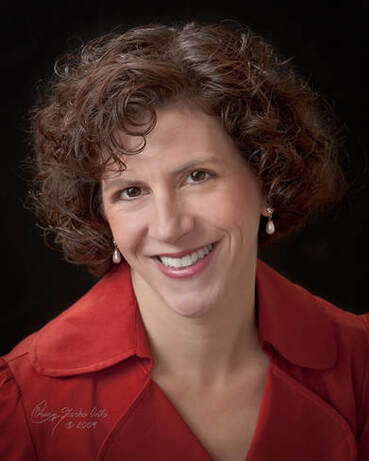
CAROL MASTRODOMENICO
Carol Mastrodomenico maintains an active schedule as a guest soloist with choruses, orchestras and other ensembles. She excels in the interpretation of oratorio, and has appeared recently in Poulenc’s Gloria, Beethoven’s Mass in C and Ninth Symphony, Brahms’ Requiem, Haydn’s Lord Nelson Mass, Mozart’s Coronation Mass and Requiem, Mahler’s Second Symphony, Mendelssohn’s Psalm 42, Handel’s Messiah, Vivaldi’s Gloria, and Fauré’s Requiem.
Ms. Mastrodomenico is an accomplished recitalist, and has recently performed programs ranging from premieres of contemporary music to cabaret programs involving interaction with the audience. She recently toured England with her production of John Morrison’s Jane Austin’s History of England singing the role of Emce. She premiered John McDonald’s Put this in your Pipe and Speech Made by Music with the Essex Chamber Players, and premiered Ellen Bender’s Five Emily Dickinson Songs during New England Conservatory’s Contemporary Festival. Other noted composers she has worked with include Robert DiDomenica and David Leisner. Ms. Mastrodomenico has a great love for Spanish Repertoire, and enjoys programing Spanish and particularly Argentinian songs to introduce the repertoire to her recital audiences.
A champion of vocal chamber music, she has worked with noted musicians premiering new works at contemporary festivals sponsored by BMOP and composer groups at Tufts University and Longy School of Music of Bard College. She has been invited to perform at the Tanglewood Music Center, Jordan Hall, Faneuil Hall, the Warebrook Contemporary Music Festival, the Boston Vocal Artists Series, the 1794 Meeting House concert Series in New Salem, and the Music at Noon Concert Series at the Swedenborg Chapel.
Ms. Mastrodomenico is the stage director of both the Tufts University Opera Ensemble and the Longy School of Music of Bard College’s Opera Theater at Longy. Recent productions she has directed include Le Nozze di Figaro, Der Zwerg, L’amico Fritz, Gianni Schicchi, Three Sisters who are not Sisters, Three Penny Opera, Dido and Aeneas, Old Maid and the Thief, Amelia Goes to the Ball, Riders to the Sea, Gallantry, The Telephone and Doctor Miracle. Ms. Mastrodomenico is a passionate advocate for newly composed works. With the Tufts Opera Ensemble, she commissioned and directed the world premieres of Knave of Hearts by Vartan Aghababian in 2013 and No Onions, nor Garlic by Thomas Stumpf in 2014. With the Longy Opera Workshop, she commissioned and directed the world premiere of Jane Austen’s History of England by John Morrison in 2014. It is her hope to commission a new opera work every year.
Ms. Mastrodomenico is just as passionate about vocal pedagogy and teaching voice. She has participated in panel discussions by the Boston NATS (National Association of Teachers of Singing) Chapter on the different elements of "Teaching Men to Sing", and was invited by the Western Massachusetts NATS chapter to give a solo presentation on Teaching Men. Her master classes at the Classical Singer Convention, Regional NATS workshops and area Colleges are widely attended. At her invitation, renowned pedagogue Ken Bozeman spoke in the Boston area about the Pedagogical Applications of Vocal Acoustics for teaching voice. She developed and annually taught a vocal curriculum for string performers at the Heifetz International Summer Institute in Staunton, Virginia, US.
Ms. Mastrodomenico’s students can be heard singing throughout the United States, Europe, and South America. They have been accepted into graduate and undergraduate programs at Julliard, Manhattan School of Music, New England Conservatory of Music, Eastman School of Music, University of Colorado at Boulder, University of Texas at Austin, University of North Texas, Cleveland Institute of Music, University of Miami, Frost School of Music, Michigan State University, University of Maryland at College Park, Ithaca College, Guild Hall and The Royal Academy of Music in London. Her singers regularly attend young artist programs at Houston Grand Opera Outreach Program, Central City, Berlin Song Festival, Edinburgh Music Festival and Halifax Opera Festival.
Ms. Mastrodomenico received her Master of Music degrees in Vocal Performance and Vocal Pedagogy at New England Conservatory of Music. She is on the voice faculties of Longy School of Music of Bard College and Tufts University.
Carol Mastrodomenico maintains an active schedule as a guest soloist with choruses, orchestras and other ensembles. She excels in the interpretation of oratorio, and has appeared recently in Poulenc’s Gloria, Beethoven’s Mass in C and Ninth Symphony, Brahms’ Requiem, Haydn’s Lord Nelson Mass, Mozart’s Coronation Mass and Requiem, Mahler’s Second Symphony, Mendelssohn’s Psalm 42, Handel’s Messiah, Vivaldi’s Gloria, and Fauré’s Requiem.
Ms. Mastrodomenico is an accomplished recitalist, and has recently performed programs ranging from premieres of contemporary music to cabaret programs involving interaction with the audience. She recently toured England with her production of John Morrison’s Jane Austin’s History of England singing the role of Emce. She premiered John McDonald’s Put this in your Pipe and Speech Made by Music with the Essex Chamber Players, and premiered Ellen Bender’s Five Emily Dickinson Songs during New England Conservatory’s Contemporary Festival. Other noted composers she has worked with include Robert DiDomenica and David Leisner. Ms. Mastrodomenico has a great love for Spanish Repertoire, and enjoys programing Spanish and particularly Argentinian songs to introduce the repertoire to her recital audiences.
A champion of vocal chamber music, she has worked with noted musicians premiering new works at contemporary festivals sponsored by BMOP and composer groups at Tufts University and Longy School of Music of Bard College. She has been invited to perform at the Tanglewood Music Center, Jordan Hall, Faneuil Hall, the Warebrook Contemporary Music Festival, the Boston Vocal Artists Series, the 1794 Meeting House concert Series in New Salem, and the Music at Noon Concert Series at the Swedenborg Chapel.
Ms. Mastrodomenico is the stage director of both the Tufts University Opera Ensemble and the Longy School of Music of Bard College’s Opera Theater at Longy. Recent productions she has directed include Le Nozze di Figaro, Der Zwerg, L’amico Fritz, Gianni Schicchi, Three Sisters who are not Sisters, Three Penny Opera, Dido and Aeneas, Old Maid and the Thief, Amelia Goes to the Ball, Riders to the Sea, Gallantry, The Telephone and Doctor Miracle. Ms. Mastrodomenico is a passionate advocate for newly composed works. With the Tufts Opera Ensemble, she commissioned and directed the world premieres of Knave of Hearts by Vartan Aghababian in 2013 and No Onions, nor Garlic by Thomas Stumpf in 2014. With the Longy Opera Workshop, she commissioned and directed the world premiere of Jane Austen’s History of England by John Morrison in 2014. It is her hope to commission a new opera work every year.
Ms. Mastrodomenico is just as passionate about vocal pedagogy and teaching voice. She has participated in panel discussions by the Boston NATS (National Association of Teachers of Singing) Chapter on the different elements of "Teaching Men to Sing", and was invited by the Western Massachusetts NATS chapter to give a solo presentation on Teaching Men. Her master classes at the Classical Singer Convention, Regional NATS workshops and area Colleges are widely attended. At her invitation, renowned pedagogue Ken Bozeman spoke in the Boston area about the Pedagogical Applications of Vocal Acoustics for teaching voice. She developed and annually taught a vocal curriculum for string performers at the Heifetz International Summer Institute in Staunton, Virginia, US.
Ms. Mastrodomenico’s students can be heard singing throughout the United States, Europe, and South America. They have been accepted into graduate and undergraduate programs at Julliard, Manhattan School of Music, New England Conservatory of Music, Eastman School of Music, University of Colorado at Boulder, University of Texas at Austin, University of North Texas, Cleveland Institute of Music, University of Miami, Frost School of Music, Michigan State University, University of Maryland at College Park, Ithaca College, Guild Hall and The Royal Academy of Music in London. Her singers regularly attend young artist programs at Houston Grand Opera Outreach Program, Central City, Berlin Song Festival, Edinburgh Music Festival and Halifax Opera Festival.
Ms. Mastrodomenico received her Master of Music degrees in Vocal Performance and Vocal Pedagogy at New England Conservatory of Music. She is on the voice faculties of Longy School of Music of Bard College and Tufts University.
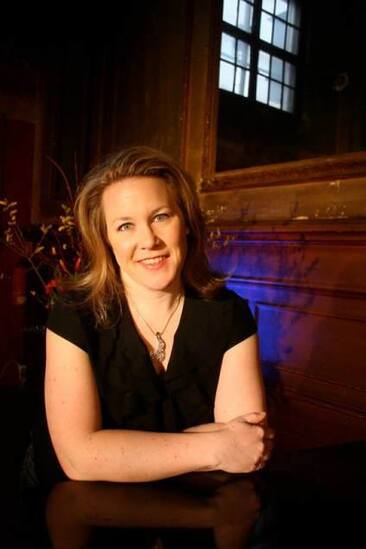
Dr. STEPHANIE WEISS
Stephanie Weiss, mezzo-soprano, was a Regional Finalist of the Metropolitan Opera National Council Auditions and recipient of a Richard F. Gold Career Grant from the Shoshana Foundation from Mannes College of Music. As the winner of the American Berlin Opera Foundation Competition, she became a member of Deutsche Oper Berlin as a Stipendiatin, where in her first season, while still a soprano, she sang Frasquita (Carmen), Musetta, Erste Dame (Die Zauberflöte), Gerhilde (Die Walküre), and Schlafittchen in the Berlin premiere of Das Traumfresserchen.
Ms. Weiss continues to be a regular guest at Deutsche Oper Berlin, where she has sung Marianne Leitmetzerin (Der Rosenkavalier), Aufseherin (Elektra), Zweite Dame (Die Zauberflöte), Grimgerde (Die Walküre), Johanna [cover] (Szenen aus dem Leben der Heiligen Johanna), and Venus [cover] (Tannhäuser) in the company’s tour to Beijing. Other appearances include Opera Orchestra of New York under Eve Queler at Carnegie Hall as Rose (Lakmé), Berlin’s Staatsoper Unter den Linden as Erste Dame (Die Zauberflöte), Marcellina (Le nozze di Figaro) and Marthe (Faust), at Oper Frankfurt as Musetta, and at Stadttheater Bern, San Diego Opera, Oper Dortmund, and Oper Köln as Marianne Leitmetzerin. She debuted with the Berlin Philharmonic as the Cook in Le Rossignol under the baton of Pierre Boulez. Other notable performances have included Venus (Tannhäuser) with Mecklenburgisches Staatstheater Schwerin, Berta (Il Barbiere di Siviglia) and Suzuki (Madama Butterfly) with Opera Las Vegas, and a return to the San Diego Opera as Giannetta (L'elisir d'amore).
Concerts include Wesendonck Lieder with the Henderson Symphony Orchestra, Lieder eines fahrenden Gesellen and Symphony No. 4 with the L’viv Philharmonic (Ukraine), and Santuzza (Cavalleria rusticana) with Singakademie Potsdam. Recent appearances include Grimgerde (Die Walküre) at Oper Leipzig, Sorceress (Dido and Aeneas) with Opera Company of Middlebury, a return to Deutsche Oper Berlin to sing Zweite Dienerin (Die Ägyptische Helena) and Aufseherin (Elektra), and the title role of Johanna (Szenen aus dem Leben der Heiligen Johanna) by Walter Braunfels at Oper Köln. In the 2017/2018 season, she sang Aksinja in Lady Macbeth of Mzensk at Deutsche Oper Berlin, and returned to Oper Leipzig to sing Grimgerde in Die Walküre.
Along with operatic and orchestral concert repertoire, Ms. Weiss is an avid performer of art song and new music. She has performed recitals in the US, France, Germany, Switzerland, and Australia, singing the music of award-winning American and German living composers. With her ‘duo au courant’ partner, pianist Christina Wright-Ivanova, she has sung the world premieres of several song cycles, including Jonathan Stark’s “Passageway”, and Daron Hagen’s “Jaik’s Songs” and “A Handful of Days.” In 2019, the duo released their debut CD of the songs of Daron Hagen, titled Sacred and Profane, on the Albany Records label.
In addition to her singing, Ms. Weiss is Assistant Professor of Voice at Arizona State University’s Herberger Institute for Design and the Arts School of Music. Her research interests include the Zwischenfach voice, as well as transgender singers and related pedagogy. Her experience with transgender singers began with her interest in vocal pedagogy and a transgender student approaching her to ask if she would be willing to work with her. Not knowing much about trans* voices at the time, she took her on and together they explored the voice. Not long after, she began working with another transgender student which led her to learn more about hormonal effects on the voice, especially for trans masculine singers. An advocate for trans* voices, she has been sought out by and worked with several trans* singers of multiple voice types and various styles. Though there are specific issues intrinsic to certain trans* voices that must be addressed, Ms. Weiss finds that it is teaching the whole person and artist to be the most important. Her teaching philosophy is to help any person find their most authentic, free, and beautiful voice and be able use it to express emotion and ideas; she aims to do this for any singer who enters her studio. Continuing to broaden her knowledge of the voice, specifically with relation to trans* singers, she is working towards a certificate in Speech and Hearing: Communication Sciences to complement the degrees she holds from New England Conservatory (B.M. voice), Tufts University (B.S. biology and drama), University of Missouri-Kansas City (M.M), Mannes College of Music (Prof. Studies Dipl.), and University of Nevada, Las Vegas (D.M.A.). Previously, she was Assistant Professor of Voice at University of Nevada, Las Vegas, a Teaching Fellow with the Metropolitan Opera Education Department, on the faculty of COSI (Centre for Opera Studies in Italy) in Sulmona, Italy, every summer teaches at AIMS in Graz in Austria.
Stephanie Weiss, mezzo-soprano, was a Regional Finalist of the Metropolitan Opera National Council Auditions and recipient of a Richard F. Gold Career Grant from the Shoshana Foundation from Mannes College of Music. As the winner of the American Berlin Opera Foundation Competition, she became a member of Deutsche Oper Berlin as a Stipendiatin, where in her first season, while still a soprano, she sang Frasquita (Carmen), Musetta, Erste Dame (Die Zauberflöte), Gerhilde (Die Walküre), and Schlafittchen in the Berlin premiere of Das Traumfresserchen.
Ms. Weiss continues to be a regular guest at Deutsche Oper Berlin, where she has sung Marianne Leitmetzerin (Der Rosenkavalier), Aufseherin (Elektra), Zweite Dame (Die Zauberflöte), Grimgerde (Die Walküre), Johanna [cover] (Szenen aus dem Leben der Heiligen Johanna), and Venus [cover] (Tannhäuser) in the company’s tour to Beijing. Other appearances include Opera Orchestra of New York under Eve Queler at Carnegie Hall as Rose (Lakmé), Berlin’s Staatsoper Unter den Linden as Erste Dame (Die Zauberflöte), Marcellina (Le nozze di Figaro) and Marthe (Faust), at Oper Frankfurt as Musetta, and at Stadttheater Bern, San Diego Opera, Oper Dortmund, and Oper Köln as Marianne Leitmetzerin. She debuted with the Berlin Philharmonic as the Cook in Le Rossignol under the baton of Pierre Boulez. Other notable performances have included Venus (Tannhäuser) with Mecklenburgisches Staatstheater Schwerin, Berta (Il Barbiere di Siviglia) and Suzuki (Madama Butterfly) with Opera Las Vegas, and a return to the San Diego Opera as Giannetta (L'elisir d'amore).
Concerts include Wesendonck Lieder with the Henderson Symphony Orchestra, Lieder eines fahrenden Gesellen and Symphony No. 4 with the L’viv Philharmonic (Ukraine), and Santuzza (Cavalleria rusticana) with Singakademie Potsdam. Recent appearances include Grimgerde (Die Walküre) at Oper Leipzig, Sorceress (Dido and Aeneas) with Opera Company of Middlebury, a return to Deutsche Oper Berlin to sing Zweite Dienerin (Die Ägyptische Helena) and Aufseherin (Elektra), and the title role of Johanna (Szenen aus dem Leben der Heiligen Johanna) by Walter Braunfels at Oper Köln. In the 2017/2018 season, she sang Aksinja in Lady Macbeth of Mzensk at Deutsche Oper Berlin, and returned to Oper Leipzig to sing Grimgerde in Die Walküre.
Along with operatic and orchestral concert repertoire, Ms. Weiss is an avid performer of art song and new music. She has performed recitals in the US, France, Germany, Switzerland, and Australia, singing the music of award-winning American and German living composers. With her ‘duo au courant’ partner, pianist Christina Wright-Ivanova, she has sung the world premieres of several song cycles, including Jonathan Stark’s “Passageway”, and Daron Hagen’s “Jaik’s Songs” and “A Handful of Days.” In 2019, the duo released their debut CD of the songs of Daron Hagen, titled Sacred and Profane, on the Albany Records label.
In addition to her singing, Ms. Weiss is Assistant Professor of Voice at Arizona State University’s Herberger Institute for Design and the Arts School of Music. Her research interests include the Zwischenfach voice, as well as transgender singers and related pedagogy. Her experience with transgender singers began with her interest in vocal pedagogy and a transgender student approaching her to ask if she would be willing to work with her. Not knowing much about trans* voices at the time, she took her on and together they explored the voice. Not long after, she began working with another transgender student which led her to learn more about hormonal effects on the voice, especially for trans masculine singers. An advocate for trans* voices, she has been sought out by and worked with several trans* singers of multiple voice types and various styles. Though there are specific issues intrinsic to certain trans* voices that must be addressed, Ms. Weiss finds that it is teaching the whole person and artist to be the most important. Her teaching philosophy is to help any person find their most authentic, free, and beautiful voice and be able use it to express emotion and ideas; she aims to do this for any singer who enters her studio. Continuing to broaden her knowledge of the voice, specifically with relation to trans* singers, she is working towards a certificate in Speech and Hearing: Communication Sciences to complement the degrees she holds from New England Conservatory (B.M. voice), Tufts University (B.S. biology and drama), University of Missouri-Kansas City (M.M), Mannes College of Music (Prof. Studies Dipl.), and University of Nevada, Las Vegas (D.M.A.). Previously, she was Assistant Professor of Voice at University of Nevada, Las Vegas, a Teaching Fellow with the Metropolitan Opera Education Department, on the faculty of COSI (Centre for Opera Studies in Italy) in Sulmona, Italy, every summer teaches at AIMS in Graz in Austria.
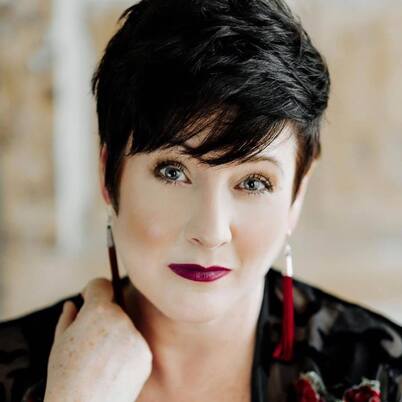
SUSAN EICHHORN YOUNG
Susan Eichhorn Young embodies all things voice: Chanteuse/Singer, Actor, Writer, Speaker, Voice Teacher, and Speaking Coach.
Canadian-born and NYC-based, her vocal versatility and its ability to live comfortably in many genres has carried her from the church to concert halls, opera and musical theatre stages, recording studios, and back to the intimacy of cabaret.
Raised in a theatrical and musical family, early piano virtuosity started with lessons at age 8. She went on to earn three ARCT diplomas (Piano Performance, Voice Performance, and Voice Pedagogy) from University of Toronto's Royal Conservatory of Music. She also holds a Bachelor of Music in Voice Performance from the University of Saskatchewan, and a Master of Music in Voice Performance and Literature from Western University, London.
Her versatility on stage has allowed her the privilege of creating operatic roles that include the Countess in Mozart’s La Nozze di Figaro, Fiordiligi in Cosi fan tutte, Musetta in Puccini’s La Boheme, the title role of Puccini’s Suor Angelica, among others; as well, she originated a role in the NYC-premiere of Alan Jaffe’s The Mary Shelley Opera.
Her music theatre, concert, and cabaret performances are numerous, and include works by Kurt Weill, Stephen Sondheim, Rodgers and Hart, Kander and Ebb, Gershwin, Cole Porter, and many more. She gave the world premiere of Modern Love Songs by American composer, Chester Biscardi, with Canadian pianist, Mark Payne. Steeped in the European cabaret tradition, her performances include German and French repertoire, as well as American Song. She has recorded and performed Schönberg's Brettl-Lieder with pianist/music director, Alan Johnson. Also, in this tradition, her debut album, Taking My Turn, is a collection of cabaret & theatre songs by Weill, Sondheim, Poulenc & William Bolcom. Recorded with music director and pianist Alan Johnson and produced by Grammy Award-winning tenor Thomas Young, Taking My Turn is available on iTunes and Spotify.
Susan's work as a voiceover artist can be heard on many promos and commercials, as well as the voice actor for 30+ audiobooks on Audible.
In addition to her performance career, Susan has worked as an Artistic Director, Stage Director and Vocal Consultant for various productions, recording studios, and talent agencies. Her passion for teaching (a legacy from her father) has allowed her a parallel path. Her private teaching, adjudicating, group workshops, and seminars have been developed throughout North America, Brazil, Europe and China. She has held long-term academic positions at Western University, Sarah Lawrence College, Moravian College, and CAP21, Tisch School of the Arts, NYU.
After a near fatal car accident in 2011, Susan took a brief hiatus from performing and teaching. However, in November of 2016, she premiered her most recent one-woman show, Why?, at The Laurie Beechman Theater to sold-out audiences and rave reviews. Online, her blog reaches a worldwide audience of over 300,000 viewers and growing!
Susan is married to tenor, Thomas Young. Her greatest accomplishment is being mother to a magnificent young woman and singer, Erin Elizabeth Eichhorn.
Susan Eichhorn Young embodies all things voice: Chanteuse/Singer, Actor, Writer, Speaker, Voice Teacher, and Speaking Coach.
Canadian-born and NYC-based, her vocal versatility and its ability to live comfortably in many genres has carried her from the church to concert halls, opera and musical theatre stages, recording studios, and back to the intimacy of cabaret.
Raised in a theatrical and musical family, early piano virtuosity started with lessons at age 8. She went on to earn three ARCT diplomas (Piano Performance, Voice Performance, and Voice Pedagogy) from University of Toronto's Royal Conservatory of Music. She also holds a Bachelor of Music in Voice Performance from the University of Saskatchewan, and a Master of Music in Voice Performance and Literature from Western University, London.
Her versatility on stage has allowed her the privilege of creating operatic roles that include the Countess in Mozart’s La Nozze di Figaro, Fiordiligi in Cosi fan tutte, Musetta in Puccini’s La Boheme, the title role of Puccini’s Suor Angelica, among others; as well, she originated a role in the NYC-premiere of Alan Jaffe’s The Mary Shelley Opera.
Her music theatre, concert, and cabaret performances are numerous, and include works by Kurt Weill, Stephen Sondheim, Rodgers and Hart, Kander and Ebb, Gershwin, Cole Porter, and many more. She gave the world premiere of Modern Love Songs by American composer, Chester Biscardi, with Canadian pianist, Mark Payne. Steeped in the European cabaret tradition, her performances include German and French repertoire, as well as American Song. She has recorded and performed Schönberg's Brettl-Lieder with pianist/music director, Alan Johnson. Also, in this tradition, her debut album, Taking My Turn, is a collection of cabaret & theatre songs by Weill, Sondheim, Poulenc & William Bolcom. Recorded with music director and pianist Alan Johnson and produced by Grammy Award-winning tenor Thomas Young, Taking My Turn is available on iTunes and Spotify.
Susan's work as a voiceover artist can be heard on many promos and commercials, as well as the voice actor for 30+ audiobooks on Audible.
In addition to her performance career, Susan has worked as an Artistic Director, Stage Director and Vocal Consultant for various productions, recording studios, and talent agencies. Her passion for teaching (a legacy from her father) has allowed her a parallel path. Her private teaching, adjudicating, group workshops, and seminars have been developed throughout North America, Brazil, Europe and China. She has held long-term academic positions at Western University, Sarah Lawrence College, Moravian College, and CAP21, Tisch School of the Arts, NYU.
After a near fatal car accident in 2011, Susan took a brief hiatus from performing and teaching. However, in November of 2016, she premiered her most recent one-woman show, Why?, at The Laurie Beechman Theater to sold-out audiences and rave reviews. Online, her blog reaches a worldwide audience of over 300,000 viewers and growing!
Susan is married to tenor, Thomas Young. Her greatest accomplishment is being mother to a magnificent young woman and singer, Erin Elizabeth Eichhorn.
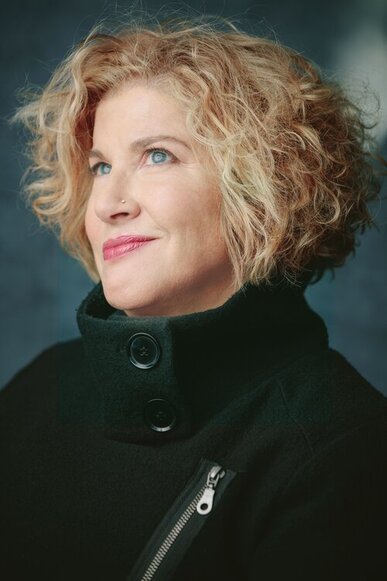
HEIDI MOSS ERICKSON
Heidi Moss Erickson, is a San Francisco Bay Area performer, educator, and scientist. Noted for her “rich and radiant soprano” (Edward Oriz, Sacramento Bee) has performed both in the United States and abroad.
A champion of new music, she frequently collaborates with renowned living composers including Daron Hagen, David Conte, Tarik O’Regan, Henry Mollicone, Jake Heggie, and her husband, Kurt Erickson.
Heidi has also garnered recognition in major competitions, including the Metropolitan Opera National Council Auditions, the Liederkranz Awards, and the MacAllister Awards.
In addition to her musical life, Heidi graduated with a double biology and music degree from Oberlin and a masters in biochemistry with an emphasis on neuroscience at the University of Pennsylvania. She studied telomeres at Rockefeller University and has several publications, including a landmark paper in the journal Cell. This was a revolutionary discovery showing that the ends of DNA are looped and it was featured in the New York Times.
Her interest in voice science came from her work in the lab of the late Richard Miller at Oberlin. In 2007, a rare cranial nerve injury sidelined her singing career, and was warned she may not ever perform again. Using her own scientific research and strategies, particularly in how speech and singing is processed in the brain, she rehabilitated to return to the art she loves. She has applied these concepts and designed a novel pedagogy to train singers of all levels, including those with hearing impairment, neurodivergent backgrounds, and physical disabilities.
In addition to a private studio, Heidi teaches vocal physiology at the San Francisco Conservatory of Music. She has been an invited speaker at the NATS National Conference,The Pacific Voice Conference, Cleveland Institute of Music, University of Oregon, Vocal ProcessUK, Vocology In Practice, and NerdNiteSF. Her courses on Singing in the Brain have been featured at the VoiceWorkshop UK, SingSpace, and through her private studio.This past year she was also featured as a keynote speaker for the British Voice Association Conference alongside Johan Sundberg, Her writings have appeared in blogs, such as The Naked Vocalist and in her journal club entitled “Minding the Gap: connecting research from basic science and neuroscience to vocal pedagogy”. She is the wife of composer/pianist Kurt Erickson, winner of the NATS Art Song Prize, and they proudly parent 4 children together.
Heidi Moss Erickson, is a San Francisco Bay Area performer, educator, and scientist. Noted for her “rich and radiant soprano” (Edward Oriz, Sacramento Bee) has performed both in the United States and abroad.
A champion of new music, she frequently collaborates with renowned living composers including Daron Hagen, David Conte, Tarik O’Regan, Henry Mollicone, Jake Heggie, and her husband, Kurt Erickson.
Heidi has also garnered recognition in major competitions, including the Metropolitan Opera National Council Auditions, the Liederkranz Awards, and the MacAllister Awards.
In addition to her musical life, Heidi graduated with a double biology and music degree from Oberlin and a masters in biochemistry with an emphasis on neuroscience at the University of Pennsylvania. She studied telomeres at Rockefeller University and has several publications, including a landmark paper in the journal Cell. This was a revolutionary discovery showing that the ends of DNA are looped and it was featured in the New York Times.
Her interest in voice science came from her work in the lab of the late Richard Miller at Oberlin. In 2007, a rare cranial nerve injury sidelined her singing career, and was warned she may not ever perform again. Using her own scientific research and strategies, particularly in how speech and singing is processed in the brain, she rehabilitated to return to the art she loves. She has applied these concepts and designed a novel pedagogy to train singers of all levels, including those with hearing impairment, neurodivergent backgrounds, and physical disabilities.
In addition to a private studio, Heidi teaches vocal physiology at the San Francisco Conservatory of Music. She has been an invited speaker at the NATS National Conference,The Pacific Voice Conference, Cleveland Institute of Music, University of Oregon, Vocal ProcessUK, Vocology In Practice, and NerdNiteSF. Her courses on Singing in the Brain have been featured at the VoiceWorkshop UK, SingSpace, and through her private studio.This past year she was also featured as a keynote speaker for the British Voice Association Conference alongside Johan Sundberg, Her writings have appeared in blogs, such as The Naked Vocalist and in her journal club entitled “Minding the Gap: connecting research from basic science and neuroscience to vocal pedagogy”. She is the wife of composer/pianist Kurt Erickson, winner of the NATS Art Song Prize, and they proudly parent 4 children together.
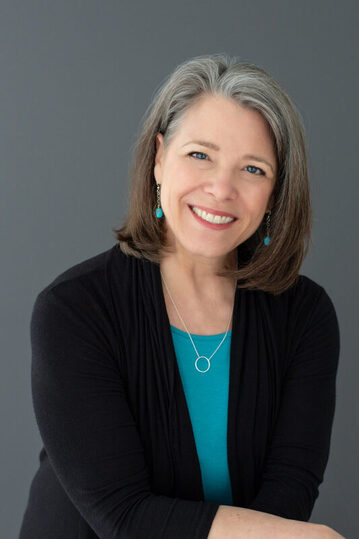
JOANNE HAYES BOZEMAN
Joanne Hayes Bozeman, voice teacher and co-author of Singing Through Change: Woman’s Voices in Midlife, Menopause and Beyond, recently retired after 26 years as a voice faculty member at Lawrence University’s Conservatory of Music in Wisconsin, U.S.. Her teaching career spans well over 40 years and she continues to maintain a private studio. A classically trained soprano, she performed frequently as a soloist and in recital, exploring a broad range of repertoire including opera, recital, oratorio, chamber music and musical theater. While continuing her teaching career, Ms. Bozeman is an active presenter on hormonal effects on women’s vocal transformation through life, with a special interest in the menopausal transition.
In Singing Through Change: Women’s Voices in Midlife, Menopause, and Beyond, Ms. Bozeman and co-authors Nancy Bos and Cate Frazier-Neely explore the lived experiences of over 50 female singers, conveying the fascinating and complex vocal and emotional journeys through and beyond the midlife hormonal shift. Written in accessible language, anchored in current research and vetted by voice and medical professionals, it speaks on behalf of singers from a number of genres and experience levels. Women will find themselves in the context of the stories and learn how and where to seek help if they need it. Singing teachers, choral directors and medical professionals will develop a holistic understanding of female singing voice, and the importance of enabling women to continue singing during a time of life which, for some, may present challenges.
Ms. Bozeman’s voice students have gone on to select graduate programs, young artist programs and singing careers; others hold positions as music educators, university-based voice teachers, and some have established careers as speech-language pathologists and singing voice specialists. In addition to studio voice in the university setting, she taught supporting courses including lyric dictions, basic voice science and acoustics, classical voice culture, and singing pedagogy for the general music classroom.
Ms. Bozeman has had a longstanding and keen interest in voice health and vocology. Her interest in the effects of hormones on the female adolescent and menopausal voice began decades ago. For a number of years, she served as voice trainer for a select choir of young women in the midst of adolescent voice maturation. In the university setting, she taught general and choral music educators about adolescent voice change of both genders. These interests formed the groundwork for her fascination with the female “second voice change”. However, it was Ms. Bozeman’s own journey through the menopausal transition and related, unexpected voice difficulties that spurred her research to understand the effects of changing reproductive hormones on the singing voice. Her experiences and research resulted in the article, “One Singer’s Experience with Perimenopause”, published in Classical Singer magazine in 2005.
As a younger woman, Ms. Bozeman became a certified childbirth and prenatal educator, helping expectant parents understand and prepare for the physical and emotional changes and demands of pregnancy, childbirth and early parenthood. Serving as a health educator in this setting equipped her for future teaching about voice health and for informing and supporting female singers if they encounter voice changes related to the menstrual cycle and menopause, pregnancy, breastfeeding and the “4th trimester”.
Ms. Bozeman is a member of the National Association of Teachers of Singing (NATS), the Pan American Vocology Association (PAVA), and the Voice and Speech Trainers Association (VASTA). She has presented on the topic of female hormones and voice for the Greater Milwaukee Chapter of the Voice Foundation, the South Florida Chapter of NATS, and the International Voice Teachers of Mix (IVTOM). Online interviews include the NATS Chat and Dr. Dan’s Voice Essentials. In the future, Ms. Bozeman will present at the NATS National Conference, the Acoustic Vocal Pedagogy Workshop at the New England Conservatory, PAVA’s International Conference, the Mix Singers Association Conference in Poland, and at the “Choice for Voice” National Conference of the British Voice Association (BVA).
Joanne Hayes Bozeman, voice teacher and co-author of Singing Through Change: Woman’s Voices in Midlife, Menopause and Beyond, recently retired after 26 years as a voice faculty member at Lawrence University’s Conservatory of Music in Wisconsin, U.S.. Her teaching career spans well over 40 years and she continues to maintain a private studio. A classically trained soprano, she performed frequently as a soloist and in recital, exploring a broad range of repertoire including opera, recital, oratorio, chamber music and musical theater. While continuing her teaching career, Ms. Bozeman is an active presenter on hormonal effects on women’s vocal transformation through life, with a special interest in the menopausal transition.
In Singing Through Change: Women’s Voices in Midlife, Menopause, and Beyond, Ms. Bozeman and co-authors Nancy Bos and Cate Frazier-Neely explore the lived experiences of over 50 female singers, conveying the fascinating and complex vocal and emotional journeys through and beyond the midlife hormonal shift. Written in accessible language, anchored in current research and vetted by voice and medical professionals, it speaks on behalf of singers from a number of genres and experience levels. Women will find themselves in the context of the stories and learn how and where to seek help if they need it. Singing teachers, choral directors and medical professionals will develop a holistic understanding of female singing voice, and the importance of enabling women to continue singing during a time of life which, for some, may present challenges.
Ms. Bozeman’s voice students have gone on to select graduate programs, young artist programs and singing careers; others hold positions as music educators, university-based voice teachers, and some have established careers as speech-language pathologists and singing voice specialists. In addition to studio voice in the university setting, she taught supporting courses including lyric dictions, basic voice science and acoustics, classical voice culture, and singing pedagogy for the general music classroom.
Ms. Bozeman has had a longstanding and keen interest in voice health and vocology. Her interest in the effects of hormones on the female adolescent and menopausal voice began decades ago. For a number of years, she served as voice trainer for a select choir of young women in the midst of adolescent voice maturation. In the university setting, she taught general and choral music educators about adolescent voice change of both genders. These interests formed the groundwork for her fascination with the female “second voice change”. However, it was Ms. Bozeman’s own journey through the menopausal transition and related, unexpected voice difficulties that spurred her research to understand the effects of changing reproductive hormones on the singing voice. Her experiences and research resulted in the article, “One Singer’s Experience with Perimenopause”, published in Classical Singer magazine in 2005.
As a younger woman, Ms. Bozeman became a certified childbirth and prenatal educator, helping expectant parents understand and prepare for the physical and emotional changes and demands of pregnancy, childbirth and early parenthood. Serving as a health educator in this setting equipped her for future teaching about voice health and for informing and supporting female singers if they encounter voice changes related to the menstrual cycle and menopause, pregnancy, breastfeeding and the “4th trimester”.
Ms. Bozeman is a member of the National Association of Teachers of Singing (NATS), the Pan American Vocology Association (PAVA), and the Voice and Speech Trainers Association (VASTA). She has presented on the topic of female hormones and voice for the Greater Milwaukee Chapter of the Voice Foundation, the South Florida Chapter of NATS, and the International Voice Teachers of Mix (IVTOM). Online interviews include the NATS Chat and Dr. Dan’s Voice Essentials. In the future, Ms. Bozeman will present at the NATS National Conference, the Acoustic Vocal Pedagogy Workshop at the New England Conservatory, PAVA’s International Conference, the Mix Singers Association Conference in Poland, and at the “Choice for Voice” National Conference of the British Voice Association (BVA).
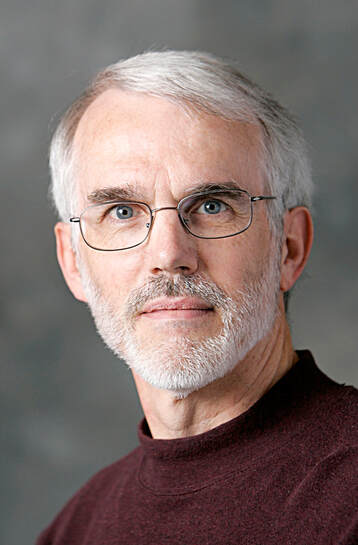
KENNETH BOZEMAN
Kenneth Bozeman, tenor, Frank C. Shattuck Professor of Music at Lawrence University Conservatory of Music in Appleton, Wisconsin, holds performance degrees from Baylor University and the University of Arizona. He subsequently studied at the State Conservatory of Music in Munich, Germany on a fellowship from Rotary International. He joined the Lawrence Conservatory faculty in 1977, teaching voice and first year music theory. He was appointed chair of the voice department in 1993, and began teaching voice science and pedagogy. Mr. Bozeman has received both of Lawrence University's Teaching Awards (Young Teacher Award, 1980; Excellence in Teaching Award, 1996). He was awarded the Van Lawrence Fellowship by the Voice Foundation in 1994 for his interest in voice science and pedagogy and is the chair of the editorial board of the NATS Journal of Singing. His students have sung with opera companies including Houston Grand, Boston Lyric, Opera Colorado, Washington, Wolf Trap, Seattle, Deutsche Oper Berlin, New York City, San Francisco, Chicago Lyric, the Metropolitan, and Santa Fe.
He has been a frequent presenter at voice science conferences and universities, and written a number of articles on the topics of voice acoustics (Choral Journal, Journal of Singing, Logopedics Phoniatrics Vocology, VoicePrints) and two books, Practical Vocal Acoustics: Pedagogic Applications for Teachers and Singers andKinesthetic Voice Pedagogy: Motivating Acoustic Efficiency. Mr. Bozeman has been a featured presenter on voice acoustics at the 2012, 2014, and 2018 NATS conventions, and was twice selected to be a master teacher for the NATS Intern Program, in 2013 and in 2017. He was the feature speaker for the NATS Winter Workshop in 2015 and the NATS online chat in January of 2016. He is recognized internationally as a leading specialist in applied vocal acoustic pedagogy, giving presentations at the Voice Foundation, the Pan European Voice Conference, Physiology and Acoustics of Singing, Ars Choralis, and the Pan American Vocology Association. He leads an annual week-long summer workshop on acoustic pedagogy with colleagues Ian Howell and Chadley Ballantyne at the new England Conservatory of Music. He was inducted into the American Academy of Teachers of Singing in 2019.
Mr. Bozeman was an active recitalist and performer of oratorio, singing the tenor roles in the St. Matthew and St. John Passions, the Christmas Oratorio, the B Minor Mass, the Magnificat, and various cantatas of Bach, Handel's Messiah, Haydn's Creation, Mendelssohn's Elijah, and Vaughn Williams’ Hodie. He has performed with the Milwaukee Symphony, the Wisconsin Chamber Orchestra, the Green Lake Music Festival, the Purgatory Music Festival of Colorado, the Louisville Bach Society, the Historical Keyboard Society of Wisconsin, and on Wisconsin Public Radio's "Live from the Elvehjem."
For more information, see his personal website: https://faculty.lawrence.edu/bozemank/
Kenneth Bozeman, tenor, Frank C. Shattuck Professor of Music at Lawrence University Conservatory of Music in Appleton, Wisconsin, holds performance degrees from Baylor University and the University of Arizona. He subsequently studied at the State Conservatory of Music in Munich, Germany on a fellowship from Rotary International. He joined the Lawrence Conservatory faculty in 1977, teaching voice and first year music theory. He was appointed chair of the voice department in 1993, and began teaching voice science and pedagogy. Mr. Bozeman has received both of Lawrence University's Teaching Awards (Young Teacher Award, 1980; Excellence in Teaching Award, 1996). He was awarded the Van Lawrence Fellowship by the Voice Foundation in 1994 for his interest in voice science and pedagogy and is the chair of the editorial board of the NATS Journal of Singing. His students have sung with opera companies including Houston Grand, Boston Lyric, Opera Colorado, Washington, Wolf Trap, Seattle, Deutsche Oper Berlin, New York City, San Francisco, Chicago Lyric, the Metropolitan, and Santa Fe.
He has been a frequent presenter at voice science conferences and universities, and written a number of articles on the topics of voice acoustics (Choral Journal, Journal of Singing, Logopedics Phoniatrics Vocology, VoicePrints) and two books, Practical Vocal Acoustics: Pedagogic Applications for Teachers and Singers andKinesthetic Voice Pedagogy: Motivating Acoustic Efficiency. Mr. Bozeman has been a featured presenter on voice acoustics at the 2012, 2014, and 2018 NATS conventions, and was twice selected to be a master teacher for the NATS Intern Program, in 2013 and in 2017. He was the feature speaker for the NATS Winter Workshop in 2015 and the NATS online chat in January of 2016. He is recognized internationally as a leading specialist in applied vocal acoustic pedagogy, giving presentations at the Voice Foundation, the Pan European Voice Conference, Physiology and Acoustics of Singing, Ars Choralis, and the Pan American Vocology Association. He leads an annual week-long summer workshop on acoustic pedagogy with colleagues Ian Howell and Chadley Ballantyne at the new England Conservatory of Music. He was inducted into the American Academy of Teachers of Singing in 2019.
Mr. Bozeman was an active recitalist and performer of oratorio, singing the tenor roles in the St. Matthew and St. John Passions, the Christmas Oratorio, the B Minor Mass, the Magnificat, and various cantatas of Bach, Handel's Messiah, Haydn's Creation, Mendelssohn's Elijah, and Vaughn Williams’ Hodie. He has performed with the Milwaukee Symphony, the Wisconsin Chamber Orchestra, the Green Lake Music Festival, the Purgatory Music Festival of Colorado, the Louisville Bach Society, the Historical Keyboard Society of Wisconsin, and on Wisconsin Public Radio's "Live from the Elvehjem."
For more information, see his personal website: https://faculty.lawrence.edu/bozemank/
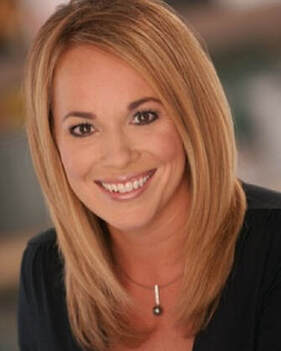
KATE EMERICH
Kate A. Emerich, B.M., M.S., CCC-SLP, owner, Vocal Essentials LLC has specialized in care of the professional voice as both a Voice Pathologist and a Singing Voice Specialist for 25 years. She is also a Voice Instructor (previously at The University of Denver, Lamont School of Music and National Theatre Conservatory (NTC) and is a professional singer. Prior to starting her own practice she worked as a Voice Pathologist, Singing Voice Specialist and Researcher with Robert T. Sataloff, M.D., D.M.A., FACS and Ingo R. Titze Ph.D. at the National Center for Voice and Speech. She holds an undergraduate degree in Vocal Performance and a graduate degree in Communicative Disorders, both from from the University of Wisconsin-Madison. Kate has written numerous articles and book chapters on professional voice topics and has served on the editorial board of the Journal of Voice for 20 years. She continues to be an active independent researcher on the biomechanics of breathing and phonation.
kateemerich.com
Kate A. Emerich, B.M., M.S., CCC-SLP, owner, Vocal Essentials LLC has specialized in care of the professional voice as both a Voice Pathologist and a Singing Voice Specialist for 25 years. She is also a Voice Instructor (previously at The University of Denver, Lamont School of Music and National Theatre Conservatory (NTC) and is a professional singer. Prior to starting her own practice she worked as a Voice Pathologist, Singing Voice Specialist and Researcher with Robert T. Sataloff, M.D., D.M.A., FACS and Ingo R. Titze Ph.D. at the National Center for Voice and Speech. She holds an undergraduate degree in Vocal Performance and a graduate degree in Communicative Disorders, both from from the University of Wisconsin-Madison. Kate has written numerous articles and book chapters on professional voice topics and has served on the editorial board of the Journal of Voice for 20 years. She continues to be an active independent researcher on the biomechanics of breathing and phonation.
kateemerich.com
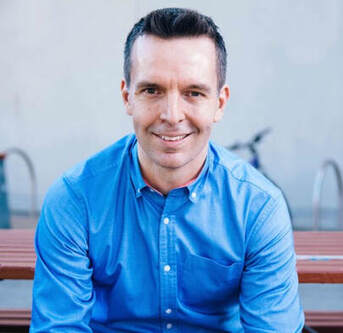
ANDREW BYRNE
Andrew Byrne is the founder and author of The Singing Athlete, a training system that teachers singers how to reach their vocal goals through the lens of the brain and the body. Andrew’s NYC studio is made up of professional musical theatre performers, and his students have been seen in over 75 Broadway shows. Andrew also has several Broadway credits himself, including the pit orchestra for Les Misèrables.
Andrew has served on creative teams for The Sundance Theatre Lab, Yale Repertory Theatre, North Shore Musical Theatre, and many others. On television, he has worked as a vocal coach for America’s Got Talent and Penny Dreadful: City of Angels (Showtime).
Twice named NYC’s favorite vocal coach in Backstage’s Reader Choice Awards, Andrew travels the world to bring his brand of brain-focused training to singers across the globe. In 2016, he was appointed by the U.S. State Department as the first Arts Envoy to the nation of Belarus, where he led the inaugural Russian-language production of the Pulitzer-Prize-winning Next to Normal. Other international teaching assigments have taken him to Singapore, Switzerland, Denmark, France, China, and four times to Australia. In North America, Andrew has enjoyed four teaching residencies in Canada (including The Banff Centre) and served as guest faculty for the prestigious University of Michigan musical theatre department.
Andrew’s side project is songwriting, where his work has been seen in feature films (IMDB page) and in prominent online sources such as Seth Rudetsky’s “Obsessed” series. His youtube channel has over 700,000 views, and his parody of Heisler and Goldrich’s “Taylor the Latte Boy” is his greatest hit.
Andrew is a master practitioner of Z-Health, a program of functional applied neuroscience for athletic trainers.
Andrew Byrne is the founder and author of The Singing Athlete, a training system that teachers singers how to reach their vocal goals through the lens of the brain and the body. Andrew’s NYC studio is made up of professional musical theatre performers, and his students have been seen in over 75 Broadway shows. Andrew also has several Broadway credits himself, including the pit orchestra for Les Misèrables.
Andrew has served on creative teams for The Sundance Theatre Lab, Yale Repertory Theatre, North Shore Musical Theatre, and many others. On television, he has worked as a vocal coach for America’s Got Talent and Penny Dreadful: City of Angels (Showtime).
Twice named NYC’s favorite vocal coach in Backstage’s Reader Choice Awards, Andrew travels the world to bring his brand of brain-focused training to singers across the globe. In 2016, he was appointed by the U.S. State Department as the first Arts Envoy to the nation of Belarus, where he led the inaugural Russian-language production of the Pulitzer-Prize-winning Next to Normal. Other international teaching assigments have taken him to Singapore, Switzerland, Denmark, France, China, and four times to Australia. In North America, Andrew has enjoyed four teaching residencies in Canada (including The Banff Centre) and served as guest faculty for the prestigious University of Michigan musical theatre department.
Andrew’s side project is songwriting, where his work has been seen in feature films (IMDB page) and in prominent online sources such as Seth Rudetsky’s “Obsessed” series. His youtube channel has over 700,000 views, and his parody of Heisler and Goldrich’s “Taylor the Latte Boy” is his greatest hit.
Andrew is a master practitioner of Z-Health, a program of functional applied neuroscience for athletic trainers.
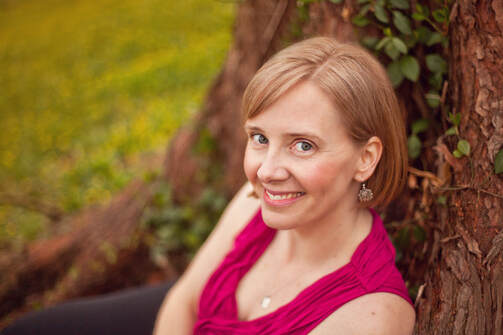
SARAH WHITTEN
Voice and movement expert, Sarah Whitten focuses on whole body wellness and function for singers. Her work is built on the concept of Vocal Interdependence, recognizing that the voice is influenced by every other system of the body and acknowledging that vocal technique alone cannot solve every issue. She pulls from her background as a professional singer and voice teacher as well as certifications and studies in a variety of movement modalities including yoga, yoga as therapy and restorative exercise. Using principles of biomechanics, research-backed movement and pain science, as well as a hefty dose of intuition, she works with singers’ bodies to resolve physical issues and find their optimal sound. She holds an MA in Vocal Pedagogy, and MM in Vocal Performance both from The Ohio State University. She has presented and worked with singers and voice teachers at National and Regional NATS conferences, New England Conservatory, Boston Conservatory, Walnut Hill School, and numerous other schools and colleges in addition to public workshops and courses both in person and online. To connect and learn more about her work visit www.sarahwhitten.com
Voice and movement expert, Sarah Whitten focuses on whole body wellness and function for singers. Her work is built on the concept of Vocal Interdependence, recognizing that the voice is influenced by every other system of the body and acknowledging that vocal technique alone cannot solve every issue. She pulls from her background as a professional singer and voice teacher as well as certifications and studies in a variety of movement modalities including yoga, yoga as therapy and restorative exercise. Using principles of biomechanics, research-backed movement and pain science, as well as a hefty dose of intuition, she works with singers’ bodies to resolve physical issues and find their optimal sound. She holds an MA in Vocal Pedagogy, and MM in Vocal Performance both from The Ohio State University. She has presented and worked with singers and voice teachers at National and Regional NATS conferences, New England Conservatory, Boston Conservatory, Walnut Hill School, and numerous other schools and colleges in addition to public workshops and courses both in person and online. To connect and learn more about her work visit www.sarahwhitten.com
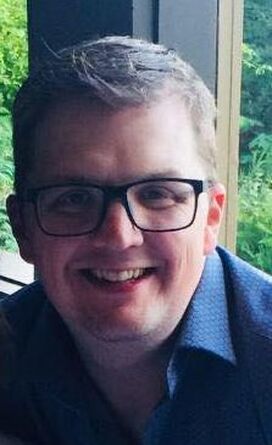
JOSH KILLINGSWORTH
American voice specialist Josh Killingsworth is a highly sought-after clinician, speaker, and teacher. In addition to teaching award-winning students in his home studio and virtually via Zoom, he has developed numerous custom music programs for local schools.
After studying opera and vocal jazz in college, Josh went on to have an eclectic performing career, which was sadly limited due to a diagnosis of multiple sclerosis in 2007. MS affected his coordination, strength, stamina, and even breath support.
Even with these physical limitations, Josh has been able to continue having a music career – besides teaching, he conducts choral workshops, arranges pieces for vocal groups, and counsels young musicians. In recent years, he has found ways to perform by singing in cabaret shows and even a vocal jazz quintet.
Josh’s first-hand knowledge of how to overcome disability to achieve musical goals and years of innovative teaching methods have combined to make him an expert in the field of teaching students with disabilities.
American voice specialist Josh Killingsworth is a highly sought-after clinician, speaker, and teacher. In addition to teaching award-winning students in his home studio and virtually via Zoom, he has developed numerous custom music programs for local schools.
After studying opera and vocal jazz in college, Josh went on to have an eclectic performing career, which was sadly limited due to a diagnosis of multiple sclerosis in 2007. MS affected his coordination, strength, stamina, and even breath support.
Even with these physical limitations, Josh has been able to continue having a music career – besides teaching, he conducts choral workshops, arranges pieces for vocal groups, and counsels young musicians. In recent years, he has found ways to perform by singing in cabaret shows and even a vocal jazz quintet.
Josh’s first-hand knowledge of how to overcome disability to achieve musical goals and years of innovative teaching methods have combined to make him an expert in the field of teaching students with disabilities.

